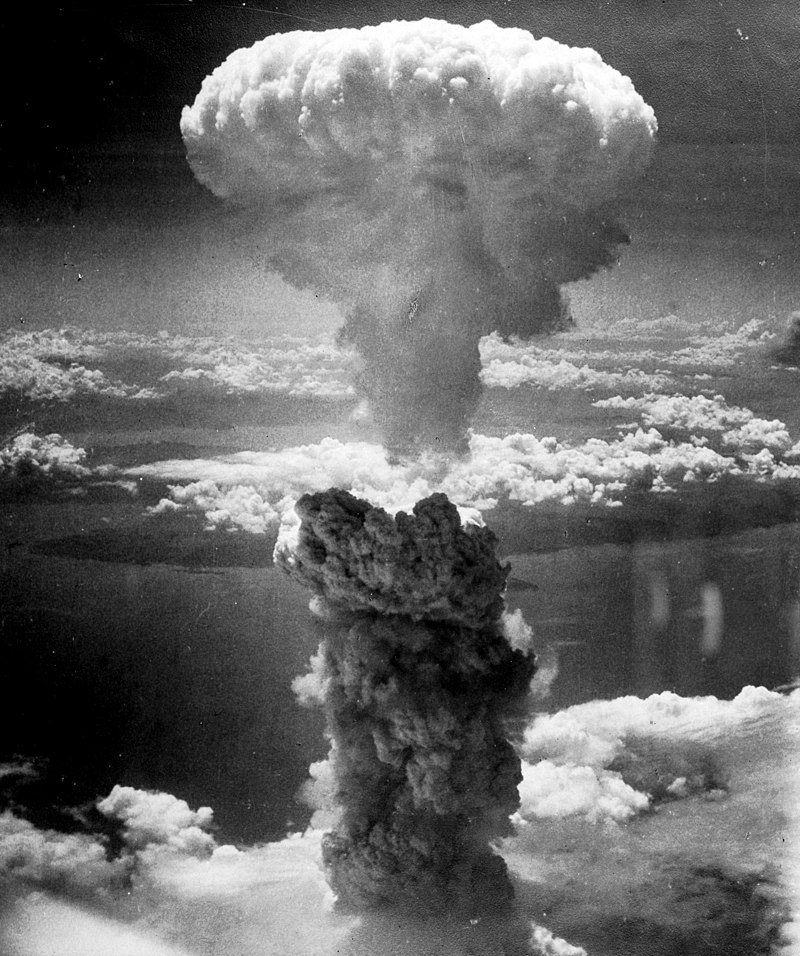Nuclear Weapons 357 - Is Mutually Assured Destruction Still A Good Policy For Nuclear Weapons
Nagasakibomb.jpg

The threat of nuclear war has been in the news a lot in the past few years. Russia has been rattling their nuclear saber by flying nuclear bombers over other countries and sailing nuclear subs into the territorial waters of other countries without permission. The Iran deal was supposed to prevent Iran from getting nuclear weapons, but the U.S. pulled out of the deal. Trump has said that maybe Japan and South Korea should get their own nuclear weapons. The U.S. and North Korea are trying to work out an agreement for N.K. to denuclearize.
When only the U.S. and the Soviet Union had huge arsenals, the logic of “mutually assured destruction” was trotted out to explain why we had to keep up with the Soviets. The idea was that we had to have a nuclear arsenal that could not be destroyed by a surprise attack from the Soviets. In other words, even if an enemy destroyed us with nuclear weapons, we would be able to reciprocate and destroy them.
The nuclear situation is much more complicated today than it was back in the days of the Cold War. Today, there are nine countries with nuclear arsenals, the U.S., Russia, China, the U.K., France, Israel, Pakistan, India and North Korea. It is no longer just a bipolar standoff between two super powers. The U.S. has defense treaties with countries around the world that would obligate the U.S. to come to their aid with U.S. nuclear weapons if they are attacked with nuclear weapons by their enemies. This is known as the U.S. “nuclear umbrella.” Does the theory of mutually assured destruction make sense today if it ever did?
The U.S. has spent billions of early warning systems to detect nuclear launches against the U.S. Other countries have not been so willing to spend much money on their own early warning systems. Soviet era satellites have ceased to function, and Russia is relying on ground based radar. There have been malfunctions in the past that have falsely indicated a nuclear attack against Russia and there is an automated system in place to launch missiles at the U.S. if the missile batteries are unable to communication with central command in Moscow. This system could malfunction and mistakenly destroy the U.S.
Each of the nine nuclear countries has its own basis for evaluating the intentions of potential enemies. Actions and statements that are considered innocent by one party may be seen to be provocative by another party in a dispute. Miscommunication that could lead to escalation of hostilities is a very real possibility.
Both the U.S. and Russia have reserved the right to use nuclear weapons if the “circumstances warrant.” Russia has threatened to use nuclear weapons against NATO if they are losing a conventional ground war against NATO. The U.S. is obligated by membership in NATO to come to the aid of other NATO members if they are attacked by Russia. A confrontation between NATO and Russia could escalate into a world nuclear war.
If a leader of the U.S. or Russia becomes irrational they could possibly launch an unjustified nuclear attack against the other country. In view of the odd behavior of the current U.S. president, Donald Trump, there have been discussions of reigning in the power of the U.S. president to unilaterally initiate a nuclear attack.
There is an old saying that the first casualty of war is the battle plan. Unpredictable events often occur in times of war. If a conventional war escalates into a nuclear war, it could mean the end of our civilization. Perhaps it is time to reconsider the idea of mutually assured destruction as a sound policy.